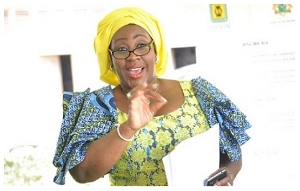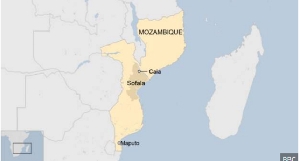Opinions of Saturday, 24 May 2008
Columnist: GNA
11th AU Summit - Challenges and Expectations
(A GNA feature by Francis Ameyibor)
Accra, May 23, GNA - Come June 24 to July 1, Heads of State and Government of Africa, donor partners and civil society organizations would congregate for the 11th Summit of the African Union (AU) at the Egyptian town of Sharm El Sheikh on the theme: "Meeting the Millennium Development Goals on Water and Sanitation."
The schedule includes meetings of the Permanent Representatives' Committee from June 24 to 25; the Executive Council from June 27 to 28 and the Assembly of Heads of State and government from June 30 to July 1, a draft agenda obtained by the Ghana News Agency in Accra said. One significant phenomenon of the Summit would be the performance of the new Leadership of the AU Commission with the new Chairperson Mr Jean Ping, who took over the Commission on the 28 April 2008.
The opening session of the Assembly of Heads of State would focus on presentations and discussions on the theme as the Commission in Charge of the theme of the Summit within the AU Commission is expected to come up with a series of recommendations for the Assembly's consideration and adoption.
Other issues to be considered include the Audit of the AU; merging of the African Court on Human and Peoples' Rights and the Court of Justice; Election of Members of the African Committee of Experts on the Rights and Welfare of the Child and Election of members of the African Court on Human and People's Rights.
The rest are the examination of the Operationalisation of the African Standby Force (ASF) as part of the AU Peace and Security Architecture. According to current planning, the ASF should be operationalized by 2010 in each of the five geographical regions of the Continent but indications show that this deadline may not be met. The Heads of State are expected to consider a report of the Peace and Security Council (PSC) on the state of peace and security in Africa focusing mostly on the ongoing situations in Darfur, Somalia and Zimbabwe, among other places.
According to Dr Emmanuel Akwetey, an expert of African Affairs and Executive Director of Institute of Democratic Governance (IDEG), the first important dossier of the new team was how to manage the outcome of the AU Audit Report, which strongly recommended the strengthening of the Commission.
He told the Ghana News Agency that the recent AU Audit Report requested by the Grand Debate on the Union Government at the Accra Summit in July 2007 provided a comprehensive analysis of the performance of the institution to date.
The report is entitled "Audit of the African Union: Towards a People-Centred Political and Socio-Economic Integration and Transformation of Africa."
Most of the recommendations of the report - 40 per cent of which are on the AU Commission - are intended to rationalize, strengthen and improve the functioning of all organs and institutions directly involved in the integration process in the Continent.
These recommendations, if approved and fully implemented, would enable the AU to provide a higher level of service and thus pave the way for the achievement of the political and economic integration in the shortest possible time.
Many of the recommendations have far reaching implications both in the short and medium term. There are, however, recommendations that require the urgent attention and decision of the Assembly. The Report has indicated some "accelerators" in order to speed up the economic and political integration of the Continent. These include: Free movement of people; Building inter-regional and transcontinental infrastructures especially in the fields of transport, communications and energy.
Others are the promotion of African multinational private investment companies for financing integration projects - infrastructure, and the early establishment of the financial institutions as provided for in the Constitutive Act. The Commission has also presented a Working Paper on the report of High Level Panel including its own observations as well as comments of the other Organs of the Union.
The Heads of State are expected to decide on the outcome of the Executive Council special session, which discussed the 159 recommendations of the Audit Report in Arusha, Tanzania, between May 6 and 7 2008.
ROLE OF CIVIL SOCIETY ORGANISATION
It is expected that Civil Society Organisations (CSO) would use the 11th Summit to mount intensive significant pressure for change and fight for the interest of the Continent. CSOs must exert pressure for the implementation of the Audit Report recommendations especially by national governments.
The upcoming summit also offers CSOs an opportunity to pressurize the Leaders not to forget the continuing suffering of millions of people in Darfur, Somalia and Zimbabwe.
CSOs must attend the 11th Summit with one voice, and not just play the role of ordinary observers and not to allow themselves to cowed by African Leaders and their foreign donors as against the interest of the majority of Africans
It is also expected that CSOs on Darfur and Somalia may use the opportunity of the Summit to advocate a political solution rather than military, inclusive political dialogue and national reconciliation process.
Neutral interlocutors must be found to facilitate this process of accountability and fight against impunity of gross human rights violation. African Leaders must publicly condemn the serious abuses of international humanitarian law and human rights laws committed by all parties to the conflict.
African Leaders must call on all parties in the conflict to take all necessary steps, including public action, to ensure that their forces ceased abuses against civilians and to prosecute members of forces alleged to have committed abuses.
They must also protect the ability of civil society organisations, including the humanitarian agencies, to operate. Union Government of Africa
On the formation of the Union Government of Africa, it is expected that the Summit would come out with a definite position, and stop the foot-dragging tactics. "We are either forming the Union Government or Not." The time to decide is now.
At the 10th Summit held in Addis Ababa, a Presidential Committee composed of 12 Head of State was created to make recommendations on how to move the Union Government process forward.
They were Tanzania (current Chair of the AU), Ghana (immediate past Chair of the AU), Botswana, Cameroon, Gabon, Egypt Ethiopia, Libya, Nigeria, Senegal, South Africa and Uganda.
The Committee met in Arusha, Tanzania on May 22-23 and is expected to submit a decision to the Assembly. The Committee would be working on the base of the previous Committee of 10 Foreign Ministers nominated in Accra (July 2007) and would be building on previous work done. The Committee's tasks also included examination of the domains of competence assigned to the AU and the implications of the sovereignty of Member-States and Regional Economic Communities, as well as, the roadmap and financing options for the Union.
The Previous Committee reiterated that the Union Government should be a union of Governments and Peoples as well as the Diaspora. It said the primary responsibility of popularising and ensuring participation of peoples rested with member States and Union Government should be the mechanism for coordinating key sectors continentally and internationally.
Seven domains of competence were re-affirmed by previous committees namely, peace and security; environment; epidemics/pandemics; trans-national crime; communications/infrastructure; global trade and research/university.
Agreement was not reached on defence and foreign policy. Financing for development, and debt cancellation was not considered. Legal experts are likely to be brought in to study the implications on national sovereignty.
No agreement was reached on which structures would be required or whether Member States should be denied membership if they acted in a manner that violated key instruments (OAU Charter, AU Constitutive Act, African Charter on Human and Peoples Rights, etc).
With just a few weeks to go, a section of Ghanaians who aired their views on the African Union Government, which was proposed during the 9th Ordinary Summit of the African Union in Accra last year, welcomed the unification agenda.
This notwithstanding, the readiness and commitments of African Leaders in ensuring that the tendency became a reality was what most of the Ghanaians interviewed were not too sure about.
Mr Eric Peasah, Technical Cooperation Department, International Organization for Migration, in his opinion said, the coming together of Africa was a laudable idea that needed to be given the outmost attention and cooperation. He said it would help to break barriers and bottlenecks when it came to movements between member countries. "Africa forming a union government would give the Continent more bargaining power over its economic activities", he said.
Mr Ernest Brown, Senior Manager Business Operations, Zipnet, was of the view that it was a bold step that the Continent was trying to take but it would depend on how they did it as Union Government was long overdue and that Africa should not waste any more time in carrying out the task.
"I suggest that those countries ready to form the Union government should take the first step for others to follow later," he said. It is expected that the 11th Summit would confront the adoption and implementation of a more responsive and rights based social policy framework for Africa. Among them are the non-implementation of existing social continental policy standards contained in various AU Decisions and Declarations and the MDGs, poor national and inter-ministerial linkages and inadequate resources.
Africans on the Continent and those in the Diaspora are anxiously waiting for the outcome of the 11th AU Summit, whether it would be a talking shop for Heads of State and Government and an opportunity for them to renew their friendship or an action oriented summit that would have far reaching effects on the citizen.












